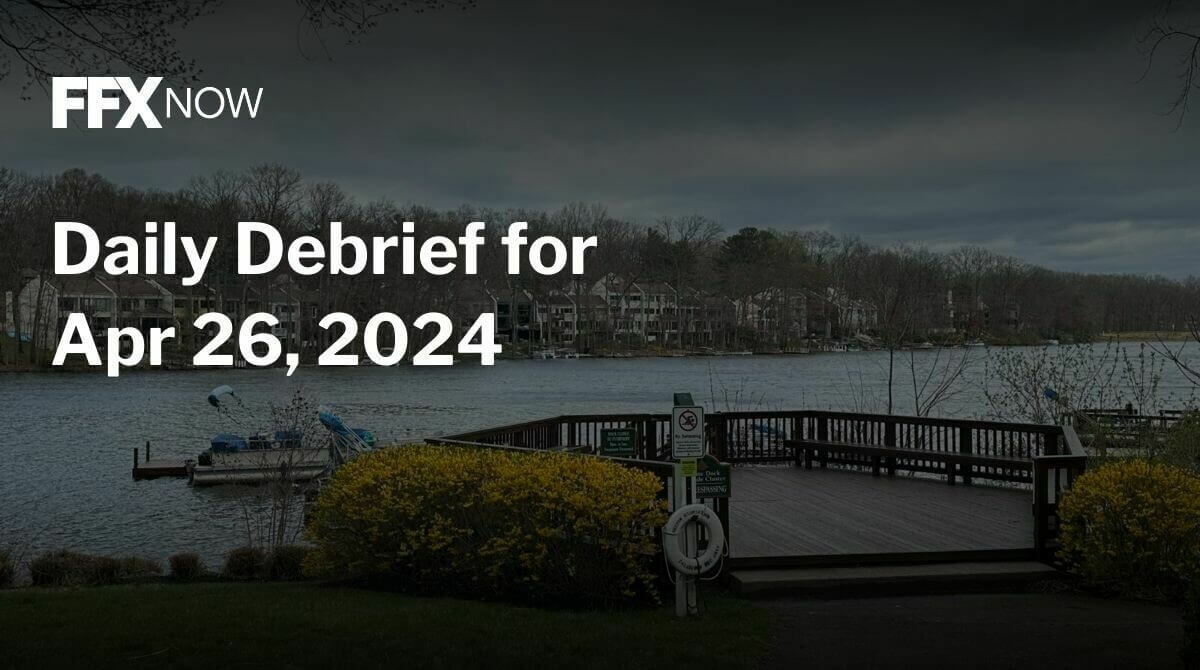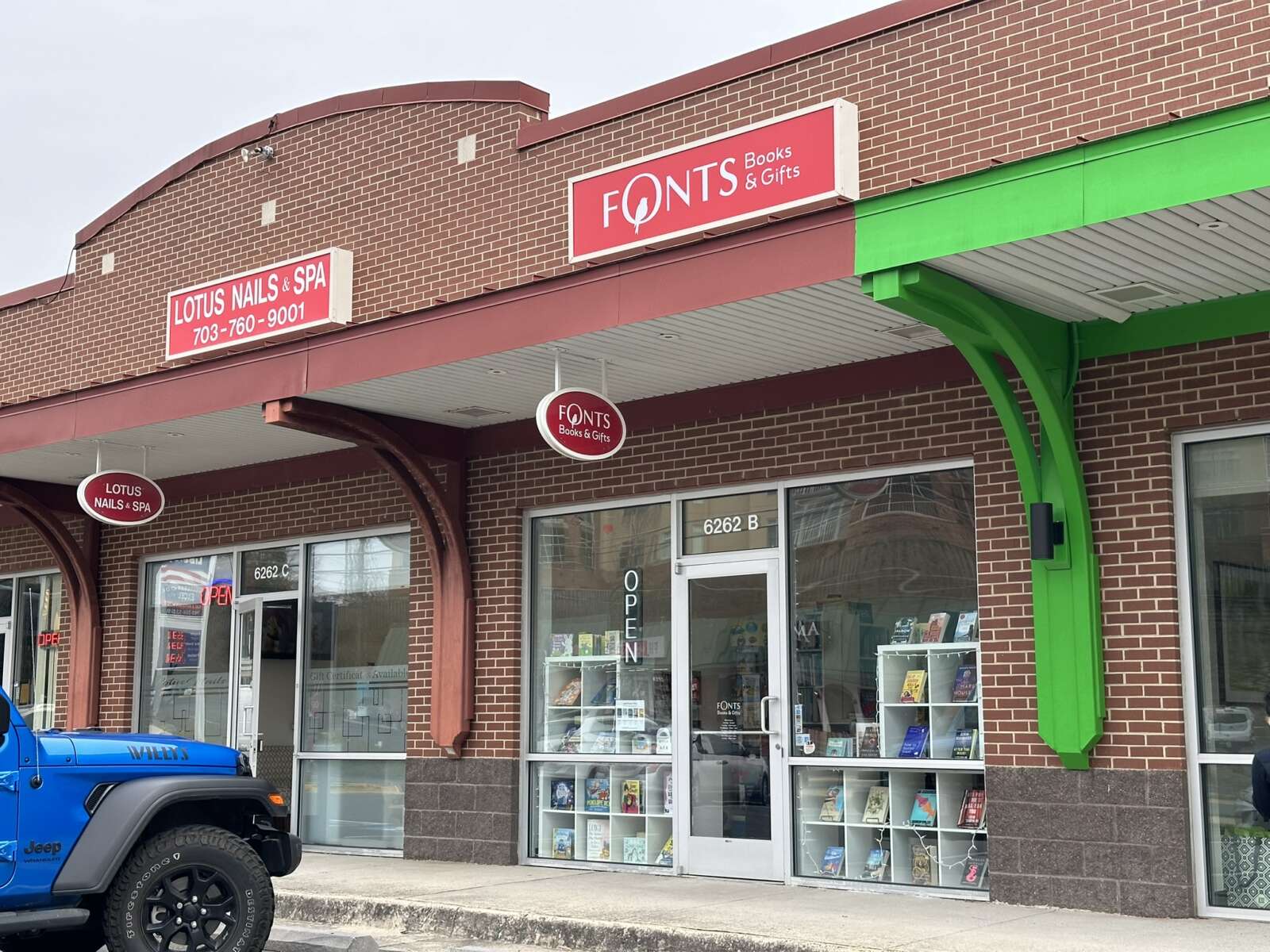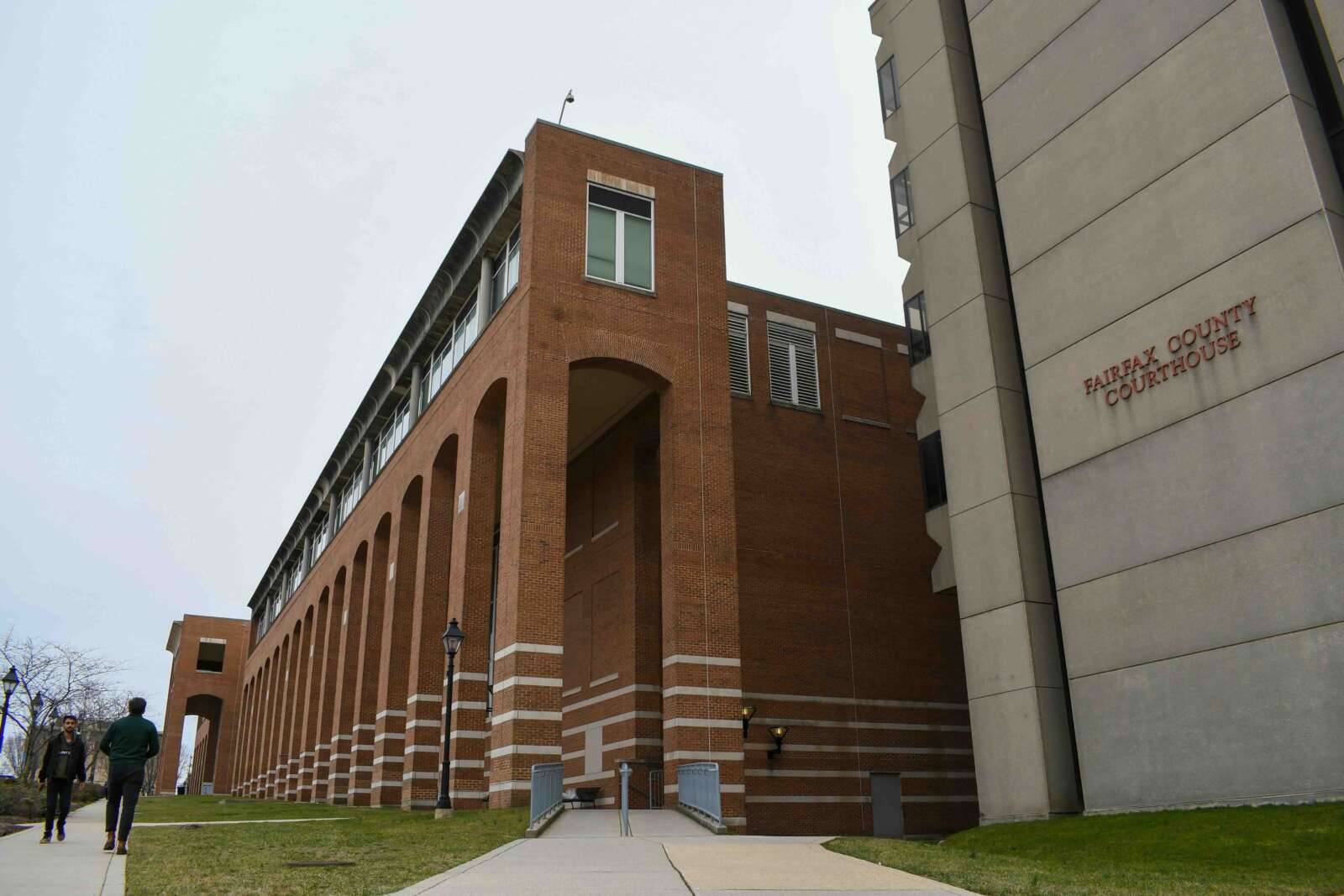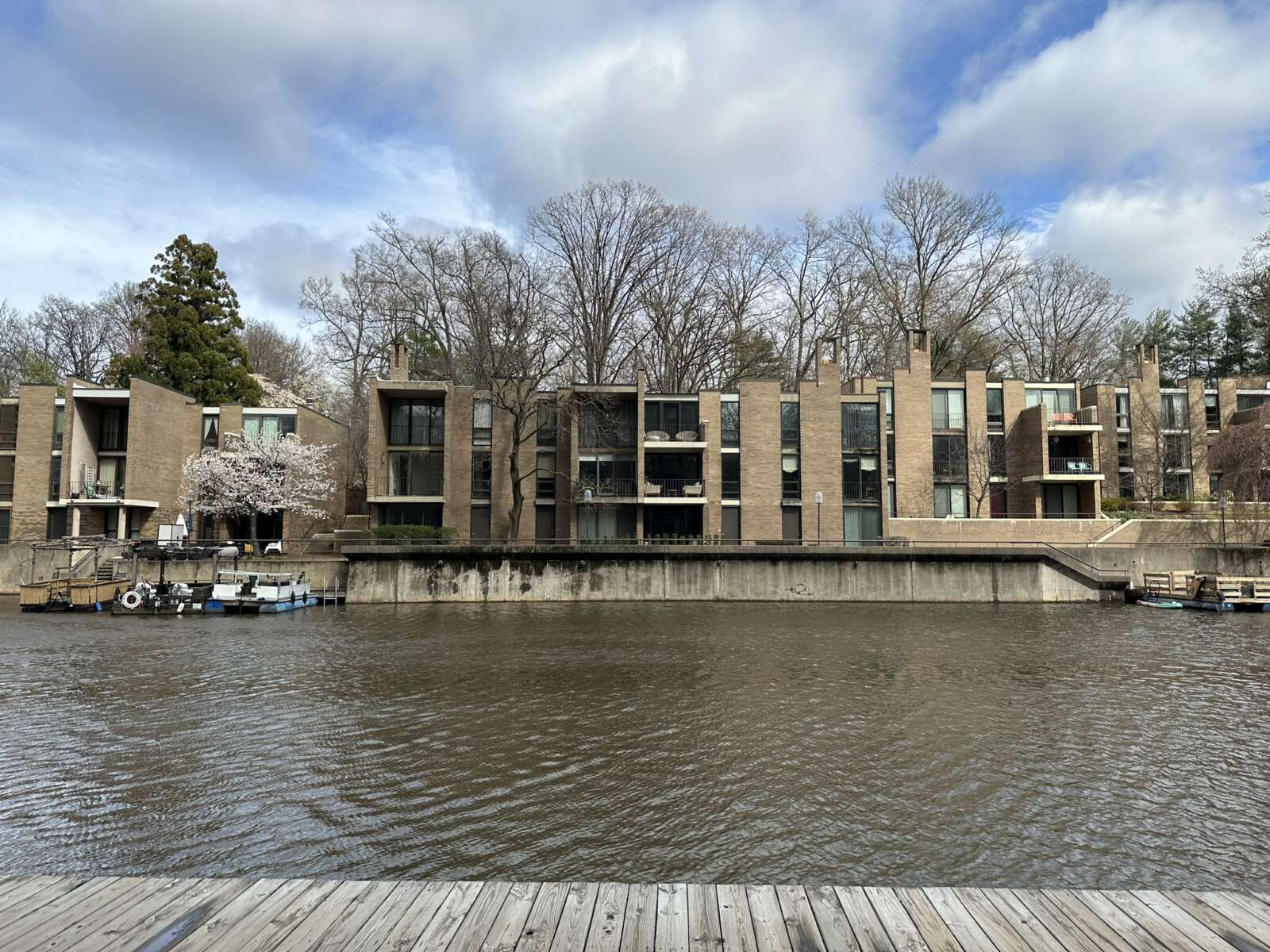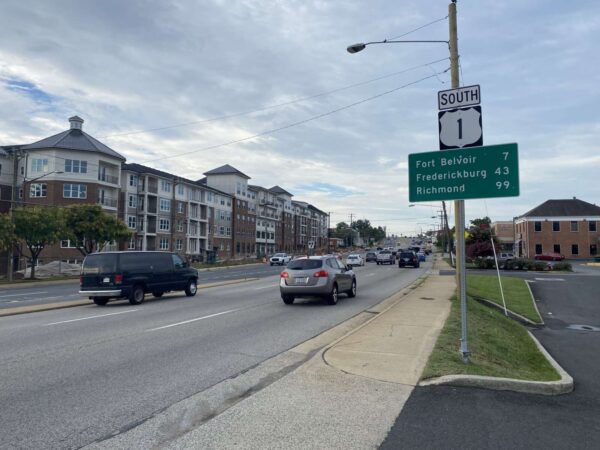
(Updated 10:55 a.m. on 7/26/2023) The ongoing redevelopment of Richmond Highway (Route 1) in Fairfax County has sparked a larger discussion over whether the benefits of road widening projects outweigh their potential harm.
The Virginia Department of Transportation plans to bring improvements to a three-mile stretch in the Richmond Highway corridor in two phases: first from Jeff Todd Way to just north of Frye Road, then from just north of Frye Road to Sherwood Hall Lane.
Notably, the changes will widen Richmond Highway from four to six lanes, which will pave the way for bus rapid transit in the corridor but has garnered some pushback from local community members.
The Coalition for Smarter Growth, which advocates for more “sustainable” transportation methods such as walking, biking and transit in the D.C. region, claimed in a recent press release that “wider roads fail, and the public knows this.”
CSG’s Northern Virginia Advocacy Manager Sonya Breehey says road widening projects create induced demand, arguing that adding more travel lanes incentivizes more people to drive and increases congestion in the long run, despite offering short-term relief.
“The idea is, we get stuck in traffic, so we add travel lanes,” Breehey said. “It’s easy for a few years, but then those travel lanes fill back up and then everybody’s clamoring again for more road widening. It’s a cyclical problem.”
Rep. Don Beyer, who represents the county’s Route 1 area in Congress, told FFXnow in an exclusive interview that he supports road widening projects.
“I think [road widening projects] are an important part of congestion relief,” Beyer said. “There’s an alternative argument…that they will fill up as fast as you build them. That’s certainly been largely true in the metro D.C. area for a long time…but at the same time, I don’t know if it’s still true today.”
In addition to adding travel lanes, the Richmond Highway project reserves median space for future lanes dedicated to The One, a bus rapid transit system that aims to outpace traditional bus services with dedicated lanes and fewer stops.
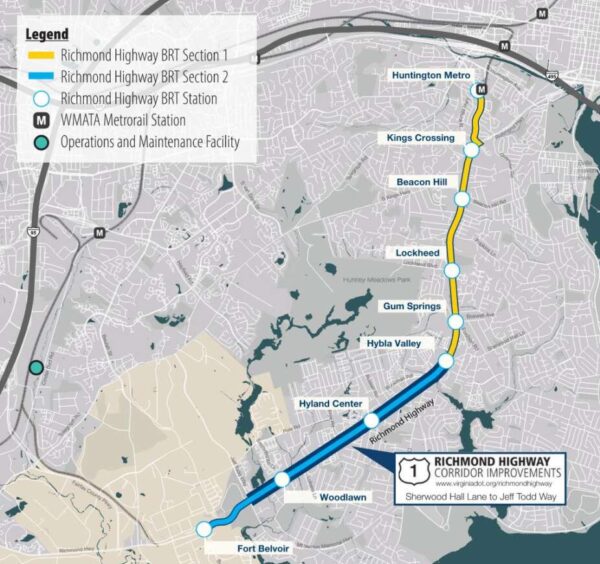
With the BRT expected to be operational in 2030, the Northern Virginia Transportation Commission announced last month that the Commonwealth Transportation Board approved $10 million to help implement the bus system from Fort Belvoir to the Huntington Metro station.
“This billion-dollar investment in a new state-of-the-art transportation system and in the communities along Richmond Highway will revitalize the area and provide more safe, convenient and dependable transportation options for the people who live here,” Mount Vernon District Supervisor Dan Storck wrote in a statement.
Storck says road widening can only be “done right” if it is “in coordination” with “walkable, bikeable communities and mass transit.”
The Northern Virginia Transportation Alliance, a longtime supporter of the Route 1 projects, says the road widening is necessary for the future BRT to work.
“The new travel lanes will be dedicated for Bus Rapid Transit and VDOT is adding miles of new bike and pedestrian connections as a part of this project,” NVTA President Jason Stanford said. “Once complete, this multimodal improvement will reduce congestion and move significantly more people throughout this major corridor.”
Breehey, however, voiced concerns about the threat to pedestrian safety that widened roadways pose.
“[The widening] also is impacting the safety and accessibility for walking and biking and getting on to the bus stops in that corridor because…people walking have to traverse 11 to 12 lanes in some areas,” she said. “So that makes it really…difficult to cross and puts those pedestrians in conflict with the drivers in the corridor as well.”
Though Breehey praised Fairfax County for bringing “more, really quality transit options in the corridor,” she says the increase in car lanes actually discourages transit use, defeating the purpose of having BRT in the area.
“They’re still trying to move more cars…so it undermines the effort to really get folks out of the cars and taking public transit,” Breehey said.
The project also requires land acquisitions on both sides of the highway to accommodate the new travel lanes.
As of June 28, VDOT had completed 21 property acquisitions out of the 191 total properties that will be affected, according to spokesperson Mike Murphy. The county is currently acquiring about 42 whole parcels for the BRT project, including residential, commercial and vacant properties, Fairfax County Department of Transportation spokesperson Robin Geiger said on June 27.
“The compensation process begins with an independent appraisal that is conducted, followed by another independent appraiser who reviews the appraisal report, then the County reviews the appraisal internally and finally an offer is made based on the appraisal, which begins the negotiation,” a coordinated response from VDOT and FCDOT said. “This entire process is conducted following federal and state and regulations.”
Local business owner Alfredo Solis told DCist in March that the Richmond Highway location of his restaurant, Mezcalero, had to shutter after the county acquired it for the corridor improvements. Solis said he felt the compensation he received from the county was not enough.
“[The amount] was not fair. You can’t buy property around there for that,” Solis said.
Beyer noted the importance of striking a balance between the needs of an individual versus the larger community.
“You also can’t let one or two or even five small businesses hold up progress for the entire rest of the community,” Beyer told FFXnow. “There’s always a balance there, which is why you have things like eminent domain….The hope, though — in many cases, not all — is that you find a way to make it so the business can continue in operation. If anything, if you improve the traffic flow in front, maybe it’s better for the business.”
Though they declined to have their names shared, at least two businesses confirmed to FFXnow that their property had been bought out by the county, and they were in the process of either relocating or closing down, respectively.
“My office continues to hear from and work with a few property owners regarding their right-of-way acquisitions,” Storck wrote. “We are here to answer questions and connect them with the best County or VDOT staff to assist them as they work through this very complicated process.”
Recent Stories

The Gillion Academy’s Home School Basketball Program begins Fall 2024 for 7th – 12th Grade student-athletes to complete their online academic studies in a supervised and focused setting while receiving elite training from our professional basketball trainers at The Gillion Basketball Academy, a state of the art training facility in Springfield, Va. We have developed over 200 college athletes and placed over 50 players in the NBA and pro leagues overseas and provide the same level of training for our student-athletes.
We will have a virtual Open House Zoom on May 6th at 7:30PM so please go to our website to learn more about us and to fill out an interest form and register for the event and learn about the top training facility in the DMV area.
Any questions please email our Director at philip.budwick@gil-lionbasketballacademy.com.

For many remote workers, a messy home is distracting.
You’re getting pulled into meetings, and your unread emails keep ticking up. But you can’t focus because pet hair tumbleweeds keep floating across the floor, your desk has a fine layer of dust and you keep your video off in meetings so no one sees the chaos behind you.
It’s no secret a dirty home is distracting and even adds stress to your life. And who has the energy to clean after work? That’s why it’s smart to enlist the help of professionals, like Well-Paid Maids.
Pedal with Petals Family Bike Ride
Join us on Saturday, May 11th and ride into spring during our Pedal with Petals Family Bike Ride. Back for its second year, Pedal with Petals is going to be bigger than ever. This year’s event will include both an
Encore Creativity for Older Adults at Capital One Hall
Encore Creativity for Older Adults is pleased to raise the curtain and welcome community members to its spring concert at Capital One Hall in Tysons, VA on May 4, 2024. The concert, which starts at 3 PM, will bring hundreds


